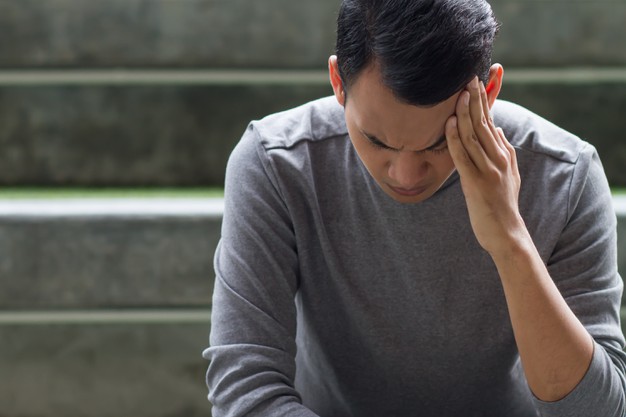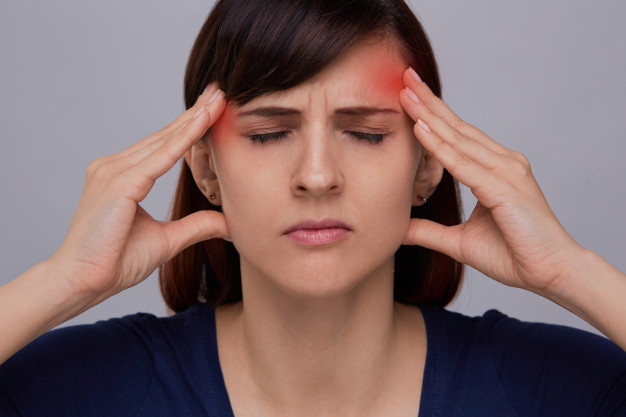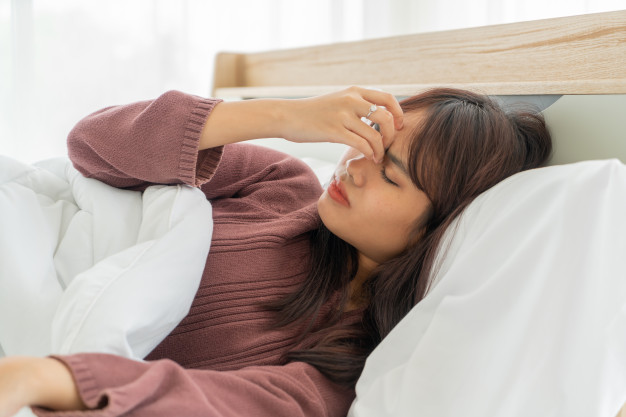TREATMENT FOR VERTIGO

WHAT IS VERTIGO?
Vertigo may be a sensation of spinning and dizziness, as if the space or surrounding environment is spinning in a circle around the person. Many people use the term to explain a fear of heights, but this is often not correct.
Vertigo can happen when an individual looks down from a fair height, but it always refers to any temporary or ongoing spells of dizziness that occur due to problems in the inner ear or brain. It is not an illness but a symptom. Many different conditions could cause vertigo. There are various remedies to treat vertigo as well.
WHAT CAUSES VERTIGO?
Various conditions might lead to vertigo, which usually involves either an imbalance in the inner ear or a problem with the central nervous system (CNS). There are a number of treatments available for vertigo as well. Conditions which will cause vertigo include the subsequent,
- Labyrinthitis : This disorder could happen when an infection causes inflammation of the internal ear labyrinth. Within this area is the vestibulocochlear nerve, which sends information to the brain about head motion, position and sound. Apart from dizziness with vertigo, an individual with labyrinthitis may experience deafness, tinnitus, headaches, ear pain and vision changes
- Vestibular neuritis : An infection causes vestibular neuritis, which is inflammation of the vestibular nerve. It is almost like labyrinthitis, but it doesn't affect a person’s hearing. Vestibular neuritis causes vertigo which will accompany blurred vision, severe nausea or a sense of being off balance
- Cholesteatoma : This noncancerous skin growth develops within the tympanic cavity, usually due to repeated infection. As it grows behind the eardrum, it could damage the center ear’s bony structures, resulting in deafness and dizziness
- Meniere’s disease : This disease causes a buildup of fluid within the internal ear, which may cause attacks of vertigo along with ringing within the ears and deafness. It is common in people between the ages of 40 and 60 years. The exact cause is unclear, but it usually stems from vessel constriction, a virus infection or an autoimmune reaction.
There may also be a genetic component that means that it runs in some families - Benign paroxysmal positional vertigo (BPPV) : The internal ear contains structures called the otolith organs, which contain fluid and particles of crystals of carbonate. In BPPV, these crystals tend to get dislodged and fall into the semicircular canals. There, each fallen crystal touches whisker cells within the cupula of the semicircular canals during movement. As a result, the brain receives inaccurate information such as a person’s position and spinning dizziness occurs. People typically experience periods of vertigo that last for 60 seconds, but nausea and other symptoms can also occur
- Other factors that Vertigo occurs with:
- Migraine headaches
- A head injury
- Ear surgery
- Perilymphatic fistula, when internal ear fluid leaks into the center ear due to a tear in either of the 2 membranes between the center ear and internal ear ○ Shingles in or around the ear (herpeszoster oticus)
- Otosclerosis, when a tympanic cavity bone growth problem results in deafness
- Syphilis
- Ataxia, which leads to muscle weakness
- A stroke or a transient ischemic attack, which people sometimes refer to as a mini stroke
- Cerebellar or brain stem disease
- Acoustic neuroma, that is a benign growth that develops on the vestibulocochlear nerve, found near the inner ear
- Multiple sclerosis
- Prolonged bed rest and therefore the use of some medications also can cause vertigo
WHAT ARE THE SYMPTOMS OF VERTIGO?
People with vertigo generally describe it as follows,
- Spinning
- Tilting
- Swaying
- Lightheadedness
- Unbalanced
- Pulled to one direction
- A sense of motion sickness
- A feeling of fullness in the ear
Vertigo may be a symptom, but it could cause or occur alongside other symptoms, too. Other symptoms that may accompany vertigo include:
- Feeling nauseated
- Vomiting
- Abnormal or jerking eye movements (nystagmus)
- Headache
- Sweating
- Ringing in the ears called tinnitus or hearing loss
DIAGNOSED?
- Medical History : To diagnose vertigo, your doctor relies on information about your medical record, including details about your symptoms. They may ask what the feeling of movement or dizziness seems like, how often it occurs, whether it occurs more frequently once you move a specific way or at certain times of the day and whether you furthermore may experience deafness or ringing within the ears. They might also want to know if you have had an infection, injury or surgery in the ear or brain, so that they can offer the best remedy to treat vertigo and provide relief from discomfort
- Physical Exam : An otolaryngologist performs a physical exam to seem for signs and symptoms of the explanation for vertigo. They might use delicate instruments to magnify and examine the auditory meatus and eardrum.Your doctor can also examine your eye movements or ask you to trace an object from one point in space to another. If you have trouble with this task or if you experience rapid eye movements or blurred vision, your doctor may refer you to an eye doctor for further testing
- Hearing Tests : An audiologist conducts a spread of hearing tests, also called audiometric tests, to collect information about the ear. Hearing tests also help doctors assess whether there's a drag with the nerve that connects the internal ear to the brain and whether the dysfunction affects both ears
- Videonystagmography Testing : Videonystagmography is employed to gauge the function of the internal ear employing a series of visual and sensory tests. The inner ear constantly sends signals to your eye muscles to help the head and body maintain balance. This type of testing allows audiologists to record and interpret eye movements and also to confirm whether inner ear dysfunction is responsible for vertigo. By using infrared light, videonystagmography avoids the possible distraction of visible light. This allows you to specialise in the visual stimuli within the test, which helps in providing cure
- Rotational Chair Testing : Audiologists use rotational chair testing to get more information about whether vertigo is of peripheral or central origin. During a lab test, you're seated on a mechanized chair that slowly rotates. You wear special goggles that record your eye movements while you're within the chair. Audiologists analyze your eye movements and interpret how they relate to the health of the internal ear
- Additional Tests : Additional tests of the interior ear could even be suggested to detect other conditions. In vestibular evoked myogenic potentials testing, the audiologists would measure a natural response of the vestibular system and neck muscles to certain sounds.
- Electrocochleography helps determine if fluid buildup causes excess pressure within the internal ear, which may cause vertigo symptoms. An audiologist can also utilize these tests to check the response of the internal ear to sound stimuli
- MRI Scans: In some people with vertigo, in particular those that even have hearing loss, the doctors may recommend an MRI scan to get a better check out the internal ear and surrounding structures. MRI scans tend to use a magnetic flux and radio waves to form computerized, three-dimensional images of the ear and thus the nerve which carries signals from the interior ear to the brain. An MRI scan may reveal a buildup of fluid or inflammation within the interior ear or a growth on the nerve
- Neurological Testing: If hearing or sensory test indicates vertigo of central origin, doctors might refer you to a specialist for neurological testing and treatment
How does acupuncture help to treat vertigo?
Acupuncture has been used for relief of acute illness, like pain, dizziness and vertigo in traditional Chinese medicine (TCM) for over a thousand years. It is considered as the best cure and permanent treatment for vertigo. Researchers have concluded that patients reported significant symptom improvement after the primary session. After the second session, they reported complete cessation of vertigo. At 6-month follow-up, the patient was still symptom-free. Subjective and objective measures document significant positive patient outcomes during a recent investigation.
Reports suggest that acupuncture might be an initial alternative therapy for vertigo. Further clinical and laboratory research was performed to verify this finding and to work out the physiologic basis of the harmonizing effect on the labyrinthic system. In general,
acupuncture is firmly believed to stimulate the nervous system and cause discharge of the neurochemical messenger molecules.
Our Branches
Valasaravakkam
Kotturpuram
WHAT IS THE MECHANISM OF ACUPUNCTURE?
Acupuncture is a traditional therapy that supports the thought of energetics within the body.
- Treatment consists of inserting needles at various pressure points on the body and through the skin. Needles aren't meant to cause pain, harm or discomfort
- A professional acupuncturist would target energy (or “qi” in Chinese medicine) or acupuncture points for treatment. These also are termed as meridians, with some being of special benefit to painful nerves and muscles within the joints, by providing the best remedy for vertigo
- By stimulating these points, parts of the systema nervosum also are stimulated to alleviate pain. Acupuncture also can provide the best pain relief from other similar head spinning issues that there might not be too many remedy options
Benefits of Acupuncture:
- The resulting biochemical changes tend to influence the body's homeostatic mechanisms, thus promoting physical and emotional well-being. Stimulation of certain acupuncture points have been shown to affect areas of the brain which are known to reduce sensitivity to pain and stress
- Acupuncture may help to alleviate and provide best remedies for vertigo by doing the following,
- Activates the left superior gyrus, anterior cingulate gyrus, dorsomedial nucleus of the thalamus and stimulates the discharge of acupuncture-specific neural substrates within the cerebellum
- Increases blood flow velocity within the vertebral-basilar artery, thus improving cervical vertigo
- Increases endorphins and neuropeptide levels, which may help to combat negative affective states
- Stimulates the nerves located in muscles and other tissues, that ends up releasing endorphins and other neurohumoral factors and changes the processing of pain within the brain and spinal cord
- Reduces inflammation, by promoting release of vascular and immunomodulatory factors
- Increases local microcirculation, that aids in dispersal of swelling
CONVENTIONAL TREATMENTS FOR VERTIGO:
Treatment for vertigo depends on what's causing it. In many cases, vertigo goes away with no treatment at all. This is often because your brain is unable to adapt to a particular position completely or minimum of partially to the interior ear changes, relying on other mechanisms to require care of balance. For some, treatment is required and should include:
- Vestibular rehabilitation : This is often a kind of physiotherapy aimed toward helping strengthen the vestibular apparatus. The function of the vestibular system includes sending signals to the brain about head and body movements relative to gravity. Vestibular rehab could even be recommended if you've recurrent bouts of vertigo. It helps train your other senses to catch abreast of vertigo, this is one of the best remedies by far
- Canalith repositioning maneuvers : The doctors might recommend a series of specific head and body movements for BPPV. The movements are done to maneuver the calcium deposits out of the canal into an indoor ear chamber so as that they're often absorbed by the body. you'll more likely experience vertigo symptoms during the procedure because the canaliths move. A doctor or physiotherapist might guide you though the movements. The movements are considered safe and sometimes effective
- Medicines : Medication provides relief and remedies for patients with vertigo. In some cases, medication could even be given to alleviate symptoms like nausea or kinetosis associated with vertigo. If vertigo is caused by an infection or inflammation, antibiotics or steroids might help reduce swelling and cure the infection. For Ménière’s disease, diuretics (water pills) could even be prescribed to reduce pressure from fluid buildup
- Surgery : In a couple of cases, surgery could even be needed for vertigo. If vertigo is caused by a more serious underlying problem, sort of a tumor or injury to the brain or neck, treatment for those problems may help to alleviate the vertigo.Acupuncture is considered as an alternative treatment and offers cure for vertigo, by avoiding surgery
BEST CURE FOR VERTIGO:
Looking for a best remedy to treat vertigo in Chennai, here’s why you should reach out to the best Acupuncturist A. Shaji Bharath from Dr.Bharath’s Acu Heal. He is currently treating patients for a wide range of conditions. As a certified acupuncture practitioner with 15 years of experience, with vast knowledge on neurology and having worked with several neurologists, Acupuncturist. A. Shaji Bharath has seen Acupuncture doing wonders on people suffering from vertigo. The effectiveness rate increases several times just with one course of Acupuncture is considered as a permanent therapy and cure since it can help alleviate the symptoms, reduce pain and increase the rate of curing vertigo, helping patients get back to their normal routine, by evaluating your condition and offering appropriate treatment. Most of the people swear by acupuncture, citing it as a ‘miracle’ to improving their quality of life, that focuses on treating vertigo, which allows you to live a hassle free healthy life.
Dial: +91 9884746916 or Visit: drbharathsacuheal.com for more details on treating vertigo using Acupuncture, by contacting the top acupuncture clinic in Chennai.
BEST ACUPUNCTURE DOCTOR NEAR ME
To choose the Best doctor for Acupuncture, it's important that the Acupuncturist should have a decade of experience and treated at least 1000 to 2000 patients.
You can also search for the Best Acupuncture Doctor near me or ask your primary care physician to refer an experienced Acupuncturist nearby. Once you find the Best Acupuncture Doctor in Chennai, you may go through their google reviews first and then fix an appointment with the doctor only when you are satisfied with the reviews.
The Best Acupuncture Doctor should address your concerns and help you feel more comfortable before your first session. Acupuncture usually takes numerous sessions or several weeks to get a complete cure in any ailment but within 3 or 4 sessions the patients will experience positive differences.
BEST ACUPUNCTURE CLINIC NEAR ME
Owing to the demand for the treatment, there are numerous clinics popping up and it is sometimes skeptical to choose the best or even the safe one. To address such concerns, you can look into the following points to choose the best acupuncture clinic for vertigo. Acupuncture is also offered in hospital pain clinics and by healthcare organizations but it is ideal to visit the best Acupuncture Clinic for vertigo. If you are not sure, it would be a good idea to contact your local doctor to see if they would be prepared to refer you to the best rated acupuncture clinics. For example in cases where a patient specifically requests acupuncture for vertigo, or where it is felt that acupuncture would complement conventional treatment. In some cases acupuncture is offered in top rated acupuncture clinics near me because conventional treatment has failed or produces unacceptable side effects. Most of the best acupuncture clinics for vertigo will spell out very clearly
We have been rewarded a 5-star rating from Google & Practo. You can also check the reviews there.
THE BOTTOM LINE
If you have vertigo and if you are looking to try alternative treatments, acupuncture may be worth a shot. Just make sure you see a licensed acupuncturist and keep up with any prescribed vertigo treatments.
SCIENTIFIC REFERENCES:
- Bhattacharyya N et al. Clinical practice guideline: benign paroxysmal positional vertigo. Otolaryngol Head Neck Surg 2008; 139 (Suppl 4): s47–s81.
- Labuguen RH. Initial evaluation of vertigo. Am Fam Physician. 2006 Jan 15;73(2):244-51.
- Brandt T, Dieterich M, Strupp M. Vertigo - Leitsymptom Schwindel. Darmstadt: Steinkopff; 2003.
For further clarifications or
to fix an Appointment
Thank you for choosing us
Our experts will get back to you at the earliest
or
FAQ:
What are the services provided for vertigo by Dr. Bharath’s Acu Heal?
Vertigo may be a sensation of spinning and dizziness, as if the space or surrounding environment is spinning in a circle around the person. but it always refers to any temporary or ongoing spells of dizziness that occur due to problems in the inner ear or brain.
After a thorough investigation by pulse and tongue diagnosis, condition of the disease is understood by the Acupuncturist .
The treatment will be given based on the symptoms chronicity and acuteness. In the first few sessions, positive changes in symptoms may be experienced and after several more sessions there are 90 to 100% chance that the patient be cured of the diseases causing vertigo .
This treatment will help in inducing sound sleep which will help and play a vital role in reversing the symptom. Simultaneously the patient will be advised on a diet and exercise regime.
What are the benefits of acupuncture for vertigo?
This is a drugless therapy and there are no side effects. During or after completing the course of treatment any form of medication if any can be stopped.
How many sessions do you need for vertigo?
It takes around 20 to 40 sessions in a period of 2 to 5 months.



 TREATMENT FOR HEADACHE
TREATMENT FOR HEADACHE
 TREATMENT FOR MIGRAINE
TREATMENT FOR MIGRAINE
